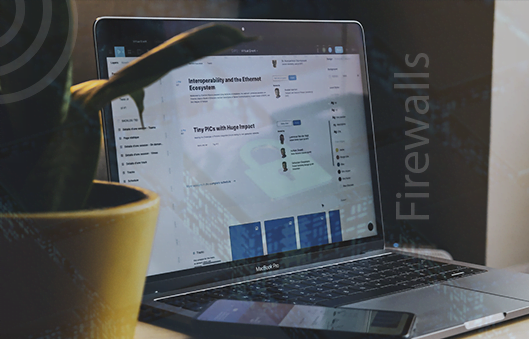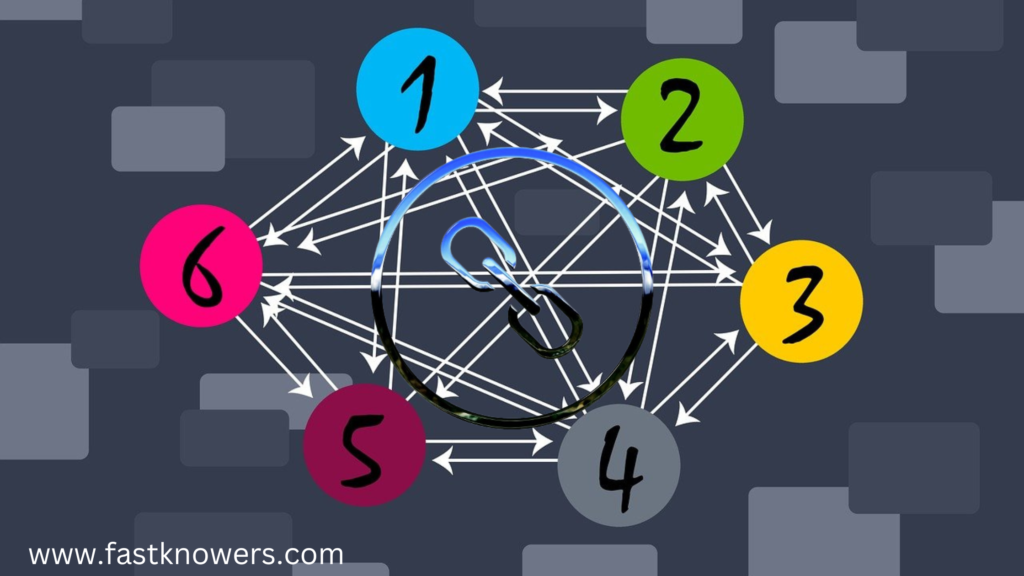
Internet Security Firewalls are used in organizations to monitor and filter incoming and outgoing network traffic based on their previously established security policies.
If you’re worried about being safe online, a firewall is here to help. It is a piece of software (sometimes hardware) that monitors your network for suspicious activity and blocks known threats. Firewalls don’t have to be complicated. There are programs that can handle installing, configuring, and updating them for you, but the more hands-on you are, the more you’ll learn about keeping yourself protected.
If you’re using a laptop or desktop, install antivirus and antimalware software on it. Active scans should be run at least weekly. Firewalls block traffic based on a set of rules that define you. For example, you might decide that outgoing traffic should only be allowed from certain computers in your home and incoming traffic should only come from trusted sources (like the Internet).
What do internet security firewalls mean?
Firewalls are software or hardware programs that can also be installed on any computer to act as a barrier between it and the rest of the internet. They’re useful for protecting against attacks from hackers, and they can also protect you from people who break into your network with malicious intent.
Available for both Windows PCs and Macs, but if you have an older operating system (like Windows XP or earlier), it may not be supported by your firewall program—so be sure to check before purchasing any device!
The best way to learn how to use this new tool is through tutorials provided by various companies that sell firewalls; these tutorials will walk users through setting up their own hardware devices so they’ll know exactly what needs doing once they’ve connected them up again later on down the line.
If installing a new firewall seems too complicated to you for now because there’s still plenty left unknown about how exactly everything works together with each other within our systems when put together like puzzle pieces then take comfort knowing.
No matter which type(s) we choose ourselves depending upon our needs at different times during each day then all along while working hard at work all day long without taking many breaks between tasks since most people feel guilty taking breaks during their work hours due time constraints imposed upon them due management decisions made earlier today regarding those same individuals being punished due lack thereof experience gained after years spent learning valuable skills required during childhood education process prior education starts again next year.
If you’re using a laptop or desktop, install antivirus and antimalware software on it. Active scans should be run at least weekly, but you should also set these programs to periodically check in with the parent company to update your protection against new threats.
Think you need to install antivirus and antimalware software? This is an important idea because malware can easily infiltrate your system through poor security practices or by simply downloading infected files from other computers.
It’s best if you have a dedicated machine for this purpose because multiple users may have access to it at once; otherwise, someone else may accidentally download something malicious while they use another computer as well (this happened when I was working on my old Macbook).
Run active scans every week: Antivirus software updates itself automatically but not always fast enough if there are lots of new threats out there.
Hence, so having more than one person doing this will ensure that any updates get done quickly enough with minimal fussing around trying to figure out where everything went wrong between yesterday’s scan results versus today’s findings (which may not even make sense since everything got fixed thanks!).
The best part about Internet Security Firewalls is that they sit between your network and the Internet, providing protection against attacks by hackers or other malicious users who want access to private information stored on your computer or device without permission. They use different rules based on how they are configured (e.g., “allow traffic from specific networks”).
The benefit of using firewalls is that they can monitor traffic coming into and out of each machine connected through them; in fact, most firewalls will automatically block suspicious packets if there’s no rule set up specifically allowing access through them!
A firewall’s job is to keep incoming traffic out of your devices and any sensitive information inside them from leaking out. This can be done through a number of methods, including:
Filtering applications on the network. This means that if you’re running an application like Windows Media Player, Netflix or Chrome, the firewall will not allow it through unless it has been approved by your administrator first (or built-in). Depending on what kind of device you’re using and how much control you want over what’s allowed in and out, this may be enough for most users’ needs.
Blocking certain ports at all times allows only specific types of data into your computer system but prevents anyone outside from being able to access it via those ports, for example, when connecting via SSH from another computer on the internet without having opened up port 22 first!
Read these also:
1. Computer maintenance tools and equipment
Types of firewalls
Basically, there are four types of security firewalls that you can install on your computer for securing you against hackers on the internet. The four types of firewalls and more reading about them are shown below.
- Packet Filtering Firewalls,
- Circuit-Level Gateways,
- Stateful Inspection Firewalls and
- Application-Level Gateways (Proxy Firewalls).
Note also that firewalls are also classified into hardware and software.
A. Hardware Firewalls
Hardware firewalls are physical devices, each with its computing resources. They act as gateways between internal networks and the internet keeping data packets and traffic requests from untrusted sources outside the private network.
Physical firewalls are convenient for organizations with many devices on the same network while blocking malicious traffic well before it reaches any endpoints, they do not provide security against insider attacks. Therefore, a combination of software and hardware firewalls can provide optimal protection to your organization’s network.
B. Software Firewalls
Software firewalls on the other hand are installed separately on individual devices to provide more granular control to allow access to one application or feature while blocking others.
But they can be expensive in terms of resources since they utilize the CPU and RAM of the devices they are installed on, and administrators must configure and manage them individually for each device. Additionally, all devices within an intranet may not be compatible with a single software firewall, and several different firewalls may be required.
Which type of internet security firewall is best for you and your organization?
Depending on your organization’s size, you can find the type of internet security firewall that best suits you by reading through the information of each one of the different types of firewalls discussed below.
Packet filtering firewalls are simplistic but offer limited security, while stateful inspection and proxy firewalls can compromise network performance. Next-generation firewalls seem to be a complete package, but not all organizations have the budget or resources to configure and manage them successfully.
1. Packet Filtering Firewalls
Packet filtering is one of the best oldest types of internet security firewalls operating at the network layer. They check a data packet for its source IP and destination IP, the protocol, source port, and destination port against predefined rules to determine whether to pass or discard the packet.
This type of firewall is essentially stateless, monitoring each packet independently without any track of the established connection or the packets that have passed through that connection previously. This makes these firewalls very limited in their capacity to protect against advanced threats and attacks.
Packet filtering firewalls are fast, cheap, and effective. But the security they provide is very basic. Since these firewalls cannot examine the content of the data packets, they are incapable of protecting against malicious data packets coming from trusted source IPs.
Being stateless, they are also vulnerable to source routing attacks and tiny fragment attacks. But despite their minimal functionality, packet filtering firewalls paved the way for modern firewalls that offer stronger and deeper security.
2. Circuit-Level Gateways
Working at the session layer, circuit-level gateways verify established Transmission Control Protocol (TCP) connections and keep track of the active sessions. They are quite similar to packet filtering firewalls in that they perform a single check and utilize minimal resources.
However, they function at a higher layer of the Open Systems Interconnection (OSI) model. Primarily, they determine the security of an established connection. When an internal device initiates a connection with a remote host, circuit-level gateways establish a virtual connection on behalf of the internal device to keep the identity and IP address of the internal user hidden.
Circuit-level gateways are cost-efficient, simplistic, and barely impact a network’s performance. However, their inability to inspect the content of data packets makes them an incomplete security solution on their own.
A data packet containing malware can bypass a circuit-level gateway easily if it has a legitimate TCP handshake. That is why another type of firewall is often configured on top of circuit-level gateways for added protection.
3. Stateful Inspection Firewalls
A step ahead of circuit-level gateways, stateful inspection firewalls, and verifying and keeping track of established connections also perform packet inspection to provide better, more comprehensive security. They work by creating a state table with source IP, destination IP, source port, and destination port once a connection is established. They create their own rules dynamically to allow expected incoming network traffic instead of relying on a hardcoded set of rules based on this information. They conveniently drop data packets that do not belong to a verified active connection.
Stateful inspection firewalls check for legitimate connections and source and destination IPs to determine which data packets can pass through. Although these extra checks provide advanced security, they consume a lot of system resources and can slow down traffic considerably. Hence, they are prone to DDoS (distributed denial-of-service attacks).
4. Application-Level Gateways/Proxy Firewalls
Application-level gateways, also known as proxy firewalls, are implemented at the application layer via a proxy device. Instead of an outsider accessing your internal network directly, the connection is established through the proxy firewall. The external client sends a request to the proxy firewall. After verifying the authenticity of the request, the proxy firewall forwards it to one of the internal devices or servers on the client’s behalf. Alternatively, an internal device may request access to a webpage, and the proxy device will forward the request while hiding the identity and location of the internal devices and network.
Unlike packet filtering firewalls, proxy firewalls perform stateful and deep packet inspection to analyze the context and content of data packets against a set of user-defined rules.
Based on the outcome, they either permit or discard a packet. They protect the identity and location of your sensitive resources by preventing a direct connection between internal systems and external networks. However, configuring them to achieve optimal network protection can be tricky.
You must also keep in mind the tradeoff—a proxy firewall is essentially an extra barrier between the host and the client, causing considerable slowdowns.
Conclusion and more reading
To keep yourself safe online, use firewalls along with antivirus software because they are a good way to keep your devices safe. They’re a critical part of any layered security strategy, and they can protect all devices on your network, not just computers.
You should use them to protect against both internal threats (such as malware) and external ones (like password cracking).
In conclusion, a firewall is a piece of software or hardware that monitors your network for suspicious activity and blocks known threats. Firewalls don’t have to be complicated.
There are programs that can handle installing, configuring, and updating them for you, but the more hands-on you are, the more you’ll learn about keeping yourself protected.
If you’re using a laptop or desktop, install antivirus and antimalware software on it. Active scans should be run at least weekly, but you should also set these programs to periodically check in with the parent company to update your protection against new threats.
Many people think that if they’re using a router on their home network they don’t need a firewall as long as they have a good antivirus program installed on their computers. At the same time, this might work for some time period.
I hope this article has helped you know the types of internet security firewalls, their meaning, and how to use them. Please do share it with others and remember to comment with questions you may have to ask via the comment section.






